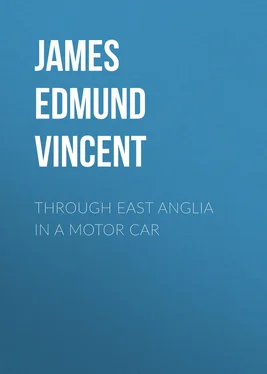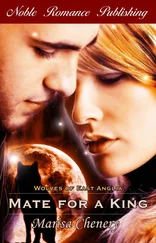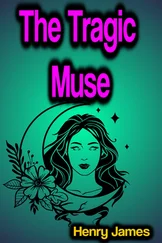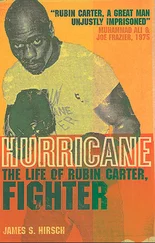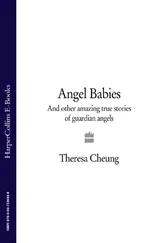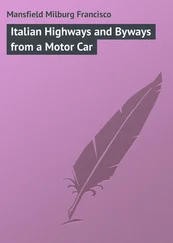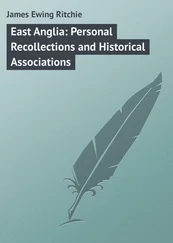James Vincent - Through East Anglia in a Motor Car
Здесь есть возможность читать онлайн «James Vincent - Through East Anglia in a Motor Car» — ознакомительный отрывок электронной книги совершенно бесплатно, а после прочтения отрывка купить полную версию. В некоторых случаях можно слушать аудио, скачать через торрент в формате fb2 и присутствует краткое содержание. Жанр: Путешествия и география, foreign_antique, foreign_prose, на английском языке. Описание произведения, (предисловие) а так же отзывы посетителей доступны на портале библиотеки ЛибКат.
- Название:Through East Anglia in a Motor Car
- Автор:
- Жанр:
- Год:неизвестен
- ISBN:нет данных
- Рейтинг книги:3 / 5. Голосов: 1
-
Избранное:Добавить в избранное
- Отзывы:
-
Ваша оценка:
- 60
- 1
- 2
- 3
- 4
- 5
Through East Anglia in a Motor Car: краткое содержание, описание и аннотация
Предлагаем к чтению аннотацию, описание, краткое содержание или предисловие (зависит от того, что написал сам автор книги «Through East Anglia in a Motor Car»). Если вы не нашли необходимую информацию о книге — напишите в комментариях, мы постараемся отыскать её.
Through East Anglia in a Motor Car — читать онлайн ознакомительный отрывок
Ниже представлен текст книги, разбитый по страницам. Система сохранения места последней прочитанной страницы, позволяет с удобством читать онлайн бесплатно книгу «Through East Anglia in a Motor Car», без необходимости каждый раз заново искать на чём Вы остановились. Поставьте закладку, и сможете в любой момент перейти на страницу, на которой закончили чтение.
Интервал:
Закладка:
But, sad truth to tell, we were in the mood of Gallio that evening, so far as these things were concerned, and the vision of the lights of Ipswich was unmixed pleasure. It was generally admitted that the last eight miles into the ancient city, from the point at which a native stated that they begun, must have been measured with a very elastic chain. Nor was entry into Ipswich easy. He who held the steering wheel was one who, for combined nicety, courage, and consideration in slipping through traffic, has few equals in this country; but his task was of more than common difficulty. The streets of Ipswich, or most of them, are of an exceeding narrowness; the electric tramcars glide through them, swift, monumental, irresistible, in their usual Juggernaut mood. Hardly anywhere is there room for a vehicle to be drawn up to the kerb on the inside of the tramway lines. We, indeed, were not suffered by the police to draw up in front of the "Great White Horse" at all, even for the purpose of dismounting, but were motioned to a side street. Moreover, although the immediately local election was over, the streets were grievously crowded for some reason or other—and surely there was never seen a population more serenely indifferent to the blast of a motor-horn! They were, perhaps, inured to peril by the tramcars, swifter in towns than any motor-car would dare to be, heavier by a long way, and exceptionally dangerous by reason of the length and height of the moving veil they draw across the view. At any rate they would not move out of the way.
Arriving, we were in a far more appreciative mood than that of Mr. Charles Dickens when he became a guest at the "Great White Horse," and wrote the account of Mr. Pickwick's arrival on the coach of the elder Weller. We found no labyrinths of uncarpeted passages, no mouldy ill-lighted rooms, no small dens for sleeping in, but rather a kindly welcome and attention, distinctly good rooms, a dining-room having plenty of space, fire and abundant cheer, and a reasonably moderate bill to discharge at the end of our stay. Yet I doubt not that the edifice, built round a cobbled courtyard that is roofed over, the bar parlour on the far side of the yard from the door, where a good many of the citizens congregate of an evening, the office window at which mine hostess receives her guests, are precisely the same as when Boz visited Ipswich. In this view I differ from Mr. Dutt; but the probability is that the alterations to which he refers were made before, not after, Dickens saw the house. Dickens did not like the place at all, that is clear. If there be doubts whether Ipswich was the original of Eatanswill, as Mr. Percy Fitzgerald suggests, there are none about the "Great White Horse," which is, of course, mentioned, and abused from floor to garret, nay, from cellar to garret: for is not "the worst possible port" mentioned—by name? We found things otherwise, but then it was not the misfortune of any of us to look out of bed and see "a middle-aged lady, in yellow curl-papers, busily engaged in brushing what ladies call their back-hair." It would be easy enough to miss the way in the recesses of the "Great White Horse"; in fact, to be frank, I did so myself, although I neither entered the wrong room nor got into the wrong bed. But the censure of Dickens generally has no reference to the present state of affairs at this classic hostelry; nay, more, such is the irony of fate, the bad name given by Dickens to this house is now its chiefest recommendation: prints of Leech's pictures adorn every wall, and the telegraphic address of the hotel is "Pickwick," Ipswich. Thus has railing been converted into blessing; thus is it proved more profitable to be abused by a great writer than to remain uncensured and ignored. Perhaps Mr. Percy Fitzgerald could oblige, as the saying goes, by explaining what the real meaning of his hero's attitude was. It must have had some deeper source than a stuffy bedroom and a bad dinner, or else the essential kindliness of the Dickensian attitude towards everything except cruelty and injustice must be cast aside as an exploded belief. Certainly no public writer would dare to write in 1906 of any hotel as Dickens wrote of the "Great White Horse" in the thirties of the last century; and perhaps that is not entirely to be regretted, for hotel-keepers really are our fellow-creatures, unwilling as some advocates of the Temperance Cause may be to admit the truth.
By the way, why is the "Great White Horse" an hotel sign in East Anglia?—not that I can endorse the description of it as "a stone statue of some rampacious animal, with flowing mane and tail, distantly resembling an insane cart-horse." It seems to me quite reasonably like to a Suffolk Punch, except in colour, and one finds Phidias never, although Apelles sometimes, over inn doors. But why a white horse? One expects such signs in the parts about Berks, where the classic Vale is named after the gigantic symbol on the northward side of the Downs, of which a simple explanation has become impossible, owing to the tiresome growth of knowledge. But why, despising all commonplace explanations, have we encountered a "White Horse" in Suffolk? Well, one of the many explanations of the White Horse par excellence is that it was taken from the horse delineated on Philip's stater, which was copied a good deal in Britain, and an explanation of the "White Horse"—I beg its pardon, the "Great White Horse"—of Ipswich may be that it had its origin in the horse figured on some of the Icenian coins that have been discovered in East Anglia. Or, again, it may be simply a survival of the ancient Saxon totem. Some such desultory speculation as this may serve to soothe the mind of an evening at Ipswich—not that after motoring all day the mind needs much soothing. But I would counsel all male motorists to burn their last incense of tobacco, as my friend and I did, in the warm bar-parlour on the side of the courtyard over against the main door, for thus shall they see the native of Ipswich in his natural state. The discovery of "this amazing England," as Mr. Kipling has said well, is the main joy of motoring; still in the evening one may do much worse things than pursue the proper study of mankind in easy-going mood, and a provincial bar-parlour is not a bad place in which to do it.
To Ipswich I have been more than once since that night of freezing cold in January, and to Bury St. Edmunds also, and more features of both will find a place in later narratives; but of each there are a few practical things to be said which must not be delayed. On a second visit to Bury, made in the course of the most troubled and delightful tour of my existence so far, I lay at the ancient "Angel" with mighty satisfaction and to the remarkably small minishing of my store of sovereigns. On a second visit to Ipswich I was hospitably entertained by a local gentleman at the "Crown and Anchor," because he thought it was the best hotel in Ipswich, and behold the fare was very good! By the same gentleman I was introduced to oysters, in a little shop near the Butter Market, the best I ever ate, and to hand-made gloves in a little shop hard by which have motored many a merry mile since then. There need be no hesitation in advertising them. They are made by a widow and her daughter out of soft and strong Cape leather, and with them, it is to be feared, the industry will die, since apprentices will not come to them in these degenerate days. Since then I have exhibited these gloves, during the Scottish "Reliability" trials, to a casual acquaintance, and her criticism, although strictly irrelevant, was too witty to be omitted. "Mphm! they look as if you had made them yourself." Ipswich gloves, then, are not for the dandy, but for the motorist they are hard to beat.
CHAPTER II
WINTER. IPSWICH TO NORWICH VIÂ WOODBRIDGE, BECCLES, LOWESTOFT, AND YARMOUTH
A walk in Ipswich—Sparrowe's House—With Pickwick and the Wellers—Start at noon—The glittering car—Another passenger—Infantine pilotage—A loose clutch—Mechanic's chagrin—A stitch in time—Nuts screwed home—Need to watch mechanics—Woodbridge—Edward Fitzgerald—Wickham Market and Saxmundham—Abyssinian luncheon—Détour to Aldeburgh—Aldeburgh described—The dilatory Alde—Birthplace of George Crabbe—His views of Aldeburgh—Saxmundham to Yoxford—Peasenhall adjacent—Yoxford to Blythburgh—A motorist's church—Détour to Southwold—Southwold described—Battle of Sole Bay—Did Isaac Newton hear guns at Cambridge?—Lord Ossory's ride from Euston—Blythburgh to Beccles—First view disappointing—Better next time—Unforeseen value of Connemara cloak—Beccles to Lowestoft— Norfolk and Norwich Notes and Queries —Their value—Origin of Lowestoft harbour—"Norwich a port"—Cubitt and Telford—Sir Samuel Peto—Meaning of "Lowestoft"—Lowestoft to Yarmouth—Direct route to Norwich—Darkness and frozen haze—Straining eyes—Norwich at last—The "Royal" formerly "Angel"—An ancient hostelry—Colossal window tax—Norfolk election memories—Corn Law riot—"Coke of Norfolk" sheltered—Always a Whig house—Stroll in Norwich—Multitude of churches—The walls and "murage" tax—A learned society's day—Fraction of Norwich only seen—Wat Tyler's Rebellion—Geoffrey Lister and Sir Robert Salle—St. Peter's Permountergate—Memories of Nelson—Fascination of Norwich—Its great men and women—George Borrow—"Old Crome"—The Norwich school.
Читать дальшеИнтервал:
Закладка:
Похожие книги на «Through East Anglia in a Motor Car»
Представляем Вашему вниманию похожие книги на «Through East Anglia in a Motor Car» списком для выбора. Мы отобрали схожую по названию и смыслу литературу в надежде предоставить читателям больше вариантов отыскать новые, интересные, ещё непрочитанные произведения.
Обсуждение, отзывы о книге «Through East Anglia in a Motor Car» и просто собственные мнения читателей. Оставьте ваши комментарии, напишите, что Вы думаете о произведении, его смысле или главных героях. Укажите что конкретно понравилось, а что нет, и почему Вы так считаете.
